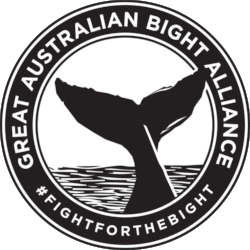English translation
A celebrity billionaire, a queen and an overall surf elite are among those protesting against Norwegian oil drilling in Australia: the planned oil exploration is perceived as madness.
On Sunday, surfers and environmentalists gathered for a very non-traditional protest in the Norwegian context.It is a rare sight so deep in the Oslofjord.
“The meeting here says something about the growing opposition also here in Norway,” said head of Greenpeace Norway, Frode Pleym.
The protest is against Equinor, the state-dominated oil company that plans to look for oil in the Great Australian Bight, the sea area just south of Australia.
Equinor has been met with major protests both locally and internationally, which believe that the scenic area is too vulnerable to oil exploration.
Paddle out against Equinor
First, the surf boards gently splashes in the Oslo fjord.Then the surfers throw themselves after, one by one, into the icy water. But the sun shines, and the surfers have thick wetsuits, so they don't freeze.
This form of protest is called a paddle out. It has a long tradition in Australia and the United States, two countries with strong surf culture.
In recent months, surfers have arranged a number of such protests several places in the world, but this is the first in front of the opera.
Saturday there was a smaller event in Stavanger.
“For me, the planned oil exploration is perceived as madness from both a brand and an economic point of view, as Equinor, as all others, must be more quickly transformed from fossil to renewable energy. And it is an insult to all of us who are illuminating action in terms of climate change and in terms of commitments we must face in the Paris treaty,” Pleym said.
In Australia, the protests have been going on for a long time, even before Equinor took over the exploration licences two years ago.
According to the environmental organisation The Wilderness Society, over 50.000 people participated in demonstrations throughout Australia in recent weeks.
Seventeen City Councils along the south coast have adopted that they are opposed, according to the Great Australian Bight Alliance.
Jess Lerch, the leader of The Wilderness Society, is in Norway to attend Equinor’s general meeting in the coming week.
“It makes me humble to see all the commitment here in Norway as well, and it’s amazing to be here. I am looking forward to coming back to Australia and telling about the commitment up here,” Lerch said.
– How likely do you think it is that Equinor will give in to the pressure?
“I think the question is when and how. The Australian people are not going to let this go on. The question is just how much pressure is going to be needed and how long it’s going to take,” Lerch said.











